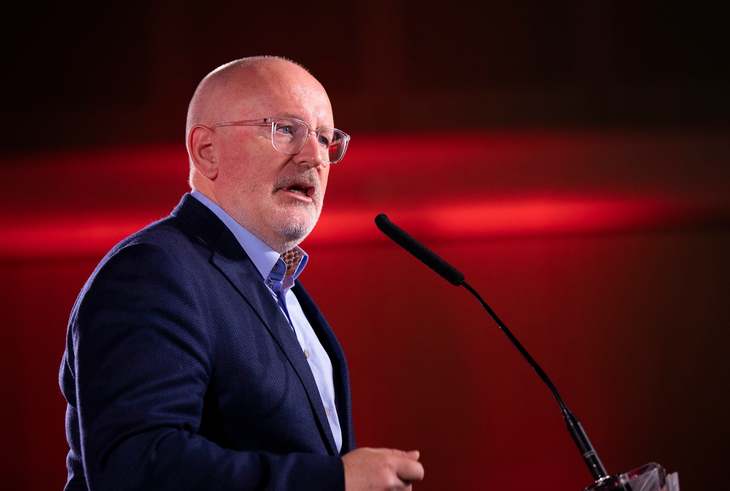Frans Timmermans, the European Commission’s VP in charge of Green Policy, did not deny that there is a proposal which would introduce an energy dictatorship in the EU, the V4 news agency reported. Moreover, the politician has negotiated with organisations which came up with ideas like 15 °C is enough in homes at night, it is worthwhile to decrease the temperature of all rooms by at least 1 °C, and if we are cold, we should buy heaters made of flower pots and tea light candles. Or should we keep a dog to warm our bed?
Edina Toth, MEP delegated by the Hungarian ruling party Fidesz, this week asked European Commission (EC) Vice-President Frans Timmermans about the news that Brussels would ban the heating of internal spaces over 18 °C. “The EC vice-president did not deny the information, but gave an evasive answer as to how they envisage this measure in practice,”
Edina Toth’s statement reads. V4NA earlier wrote about the planned energy dictatorship in the EU, i.e. Brussels plans to cap the internal temperature of buildings at a maximum of 18 degrees Celsius.
So, it comes as little surprise that in the past few months, Frans Timmermans and his team have engaged in negotiations with organisations urging similar measures. In addition, they offer a link to a website which shows where to buy heaters made of clay flower pots and tea lights. Visitors of the page can also fill out a test on how green they are.
Another organisation which Mr Timmermans’s team talked with discusses in a study how much energy could be saved if people decreased the temperature by 0.5-1.5 °C in all rooms. They add that consumer behaviour can be changed only gradually. In light of all this it is no wonder that Timmermans also suggests people choose to heat less, go by bike, not by car, shower for a shorter time and air their clothes out instead of washing them.
The question arises, however, when Brusselites will suggest that everyone adopt a bichon dog. After all, one of the oldest dog breeds in Europe has been a popular companion dog for ladies for centuries. In addition, not only were the little white dogs brilliant pets, they also had a practical benefit: they served as bed warmers for women and patients who felt cold.




Comments are closed for this post.